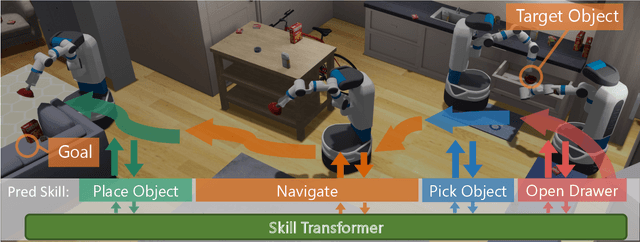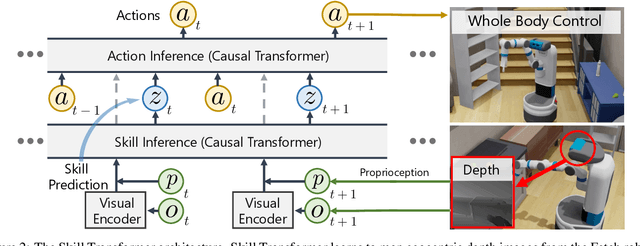Skill Transformer: A Monolithic Policy for Mobile Manipulation
Paper and Code
Aug 19, 2023



We present Skill Transformer, an approach for solving long-horizon robotic tasks by combining conditional sequence modeling and skill modularity. Conditioned on egocentric and proprioceptive observations of a robot, Skill Transformer is trained end-to-end to predict both a high-level skill (e.g., navigation, picking, placing), and a whole-body low-level action (e.g., base and arm motion), using a transformer architecture and demonstration trajectories that solve the full task. It retains the composability and modularity of the overall task through a skill predictor module while reasoning about low-level actions and avoiding hand-off errors, common in modular approaches. We test Skill Transformer on an embodied rearrangement benchmark and find it performs robust task planning and low-level control in new scenarios, achieving a 2.5x higher success rate than baselines in hard rearrangement problems.
 Add to Chrome
Add to Chrome Add to Firefox
Add to Firefox Add to Edge
Add to Edge